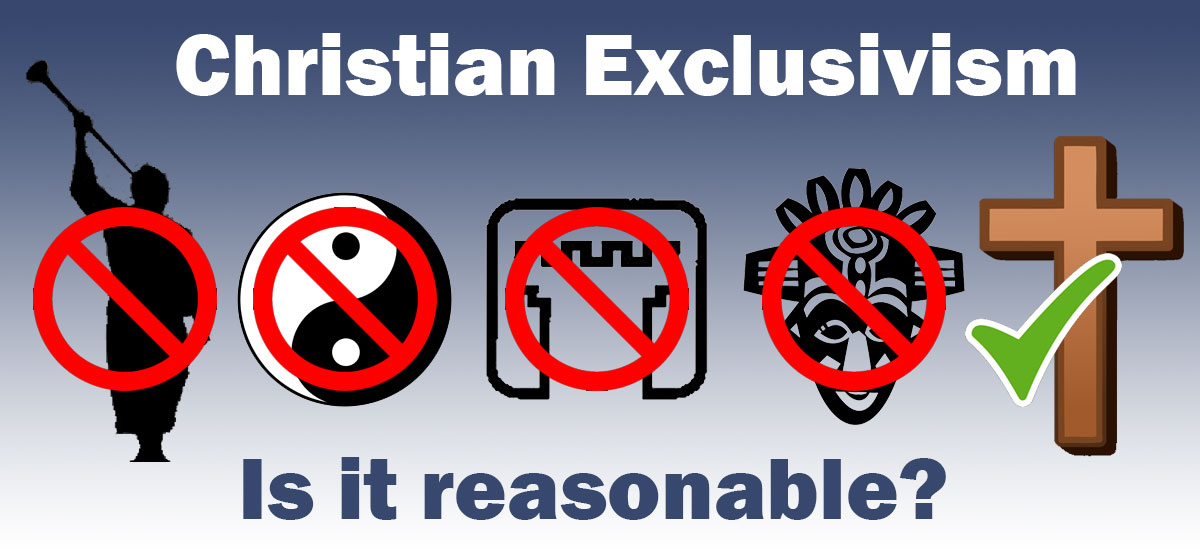Is Christian Exclusivism Really Reasonable?

I read your article "Those who have never heard of Jesus" with interest. As I understand it, those who obey their inner moral code will go to protestant heaven along with Christians.
I suppose that might lead to the following scenario-
A Mormon, a JW, a Buddhist, and African tribesman (who had never heard of Jesus in any form) all arrive in heaven at the same time. The Mormon points out that he believed in Jesus as his savior and did his best to live the teachings of Jesus. But (according to protestant theology) the Mormon was a cultist who was deceived.
To hell with him.
The JW points out that he also believed in Jesus and tried to live the teachings of Jesus. Another cultist.
To hell with him.
The Buddhist, seeing the way the Mormon and the JW fared, knows what's coming.
To hell with him.
The savage has the red carpet rolled out for him. Jesus introduces himself and they live happily ever after. Now all four of these men lived pretty good lives. The Mormon and the JW even trusted Jesus as their savior but being deceived, went to hell for all their troubles.
And finally, my point: Why do think that this is reasonable?
Sincerely,
Bryan
Hi Bryan,
Thank you for writing. I'm glad I can perhaps clarify some misconceptions or misunderstandings on my answer. I don't think that your analogy holds and the reason is your primary supposition is incorrect. I never said that if one obeys his inner moral code he is guaranteed heaven. What I did say was "Further, every person develops some type of a moral code that they judge others against. No one has ever been able to consistently keep even their own moral code without adjusting it or rationalizing their behavior." The problem with man's inner moral code is it's skewed; distorted because of the sin nature in all of us. The savage doesn't have "the red carpet rolled out for him" just because he's a savage. In fact he is just as guilty of sin as any of the other people you use in your analogy.
My point in that discussion was to show that it is not unfair of God to condemn even those who had never heard of Him before. Again, the analogy of an inmate on death row works well, for the governor didn't cause him to be sentenced and jailed, his actions brought him to that point. The governor can pardon him, but that would be an act of unmerited favor on the governor's behalf. That would be grace.
So far, all of the above is completely logical. Now, a person who realizes that he falls woefully short of being righteous, that person can then begin to seek for the way of escape from this destiny. He may investigate different faiths or try to perfect himself, but he will always find that his attempts are inadequate. Christianity is the only belief system that teaches there is no way a man can work his way to heaven. Jesus puts the burden of earning salvation squarely upon His own shoulders and says that all we must do is respond to His actions in belief. That includes belief of who He is and what He has done for us.
Your example breaks down on a couple of other points, though. Mormons and the Jehovah's Witness both identify themselves as followers of the teachings of Jesus, yet they both deny the essentials of who Christ really was and what His purpose in coming was all about. The teachings of the Church of Jesus Christ of Latter Day Saints and the Watchtower Bible and Tract Society explicitly contradict the New Testament teachings that they claim to uphold. They do not accept salvation as it was given or intended, so they must be judged on their own merits-and found wanting.
In just the same way, the Buddhist and the "savage" are judged by their own merits. No one is granted any special privileges because he believes in one religious system over another. Everyone is judged on only one criteria- total righteousness. This is not an unreasonable idea. As a matter of fact, most people are uncomfortable with it because it seems too rigid and logical, and not compassionate enough. However, God does impute Christ's perfect righteousness to us if we accept Him and His sacrifice in faith.
I hope this discussion has cleared up some of the thoughts I was dealing with in the last letter. Let me know if I've left anything out. I'd like to hear from you.





